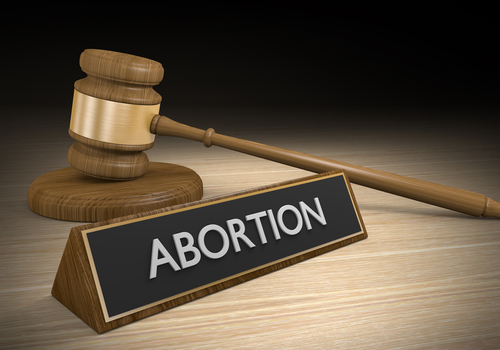Is Alito right about the 'unbroken tradition of prohibiting abortion'? Scholars disagree on the history

Image from Shutterstock.
U.S. Supreme Court Justice Samuel Alito’s draft abortion opinion that would overturn Roe v. Wade says the 1973 decision “either ignored or misstated” the history of abortion laws.
But Alito’s draft opinion doesn’t settle the debate over the history of abortion laws before the 1868 adoption of the 14th Amendment, the New York Times reports.
Politico published the leaked draft opinion earlit this week, written by Alito for a majority of the high court.
The Atlantic looked at the scholarly debate in a March 2016 article.
“Scholars don’t agree on whether, before the 1800s, abortion was relatively common and legally accepted or whether it was considered a grave crime, when it happened at all,” the article said.
The debate plays out in the Roe opinion by Justice Harry Blackmun and Alito’s draft opinion that would overturn it.
First and foremost, Alito’s opinion differs with Roe’s finding that the right to abortion before viability was protected by the 14th Amendment’s concept of personal liberty.
“The Constitution makes no reference to abortion, and no such right is implicitly protected by any constitutional provision,” Alito wrote in the draft opinion.
Alito goes further to criticize Roe’s recitation of the history of abortion laws.
In Roe, Blackmun said criminal abortion laws in effect at the time of the decision “are of relatively recent vintage.” The current laws mostly derive from statutory changes enacted in the latter half of the 19th century, Blackmun wrote.
At common law, an abortion before quickening—the point when the movement of the fetus is first felt in the womb—was not an indictable offense, Blackmun said. Quickening often happens at about four months, according to the Atlantic.
Abortion after quickening was at most a lesser offense, Blackmun said. And it is doubtful that abortion of a quick fetus was ever firmly established as a common law crime, he said.
Alito countered that common law made abortion criminal at least after quickening, although common law authorities differed on the punishment for abortions at different stages of pregnancy. But “none endorsed the practice,” Alito said in the draft opinion.
In the 1800s, laws expanded criminal liability for abortions, Alito said. By the time that the 14th Amendment was enacted, three-quarters of the states had made abortion a crime at any stage of pregnancy, Alito wrote.
“The inescapable conclusion is that a right to abortion is not deeply rooted in the nation’s history and traditions,” Alito wrote. “An unbroken tradition of prohibiting abortion on pain of criminal punishment persisted from the earliest days of the common law until 1973.”
According to the New York Times, Alito partly relied on a book by Joseph W. Dellapenna, a professor at the Villanova University Charles Widger School of Law, called Dispelling the Myths of Abortion History.
According to an ad for the book, Blackmun had built on the work of scholars who argued that abortion was common and relatively safe in the 19th century; that abortion statutes were enacted to protect the life of the mother, rather than the fetus; and that the moving force behind expanded criminal liability was an attempt by the male medical profession to suppress competition.
Dellapenna’s book argued, however, that American law always treated abortion as a serious crime, and that prosecutions focused on protecting the fetus.
An amicus brief submitted by the American Historical Association and the Organization of American Historians took a different view.
“Newly accessible historical evidence” refutes any claim that the nation “had a settled view on the criminality of abortion” in the period between the adoption of the Constitution and 1868, the brief said.
See also:
ABAJournal.com: “Legal experts fear loss of abortion right could usher in end of same-sex marriage, other rights”
ABAJournal.com: “What is the potential impact of the abortion case before the Supreme Court?”
ABAJournal.com: “In ‘devastating blow’ to abortion rights, top Texas court stymies suit to overturn restrictive law”
ABAJournal.com: “Supreme Court allows abortion providers to sue over Texas law but keeps law intact for now”
ABAJournal.com: “Chemerinsky: Ruling in abortion cases will greatly affect women’s lives but won’t end controversy”
ABAJournal.com: “ABA urges Supreme Court to rule US can sue to block unconstitutional Texas abortion law”
ABAJournal.com: “Idaho lawmakers pass abortion bill copying Texas; what can abortion-rights states do?”
ABAJournal.com: “Rare but not unprecedented Supreme Court leak considered ‘staggering’”



